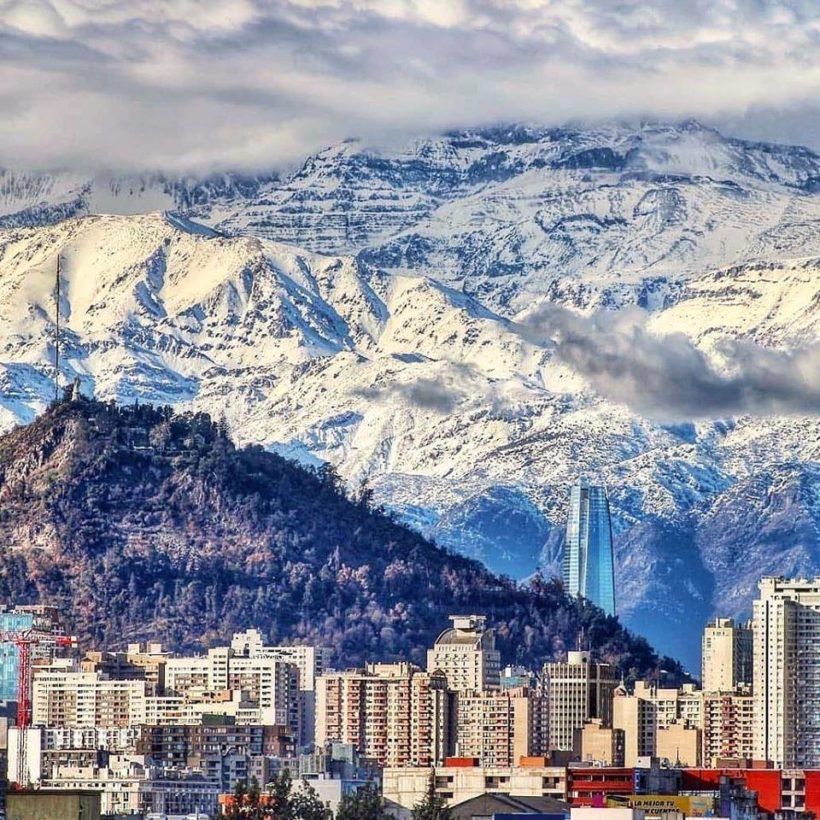During the first years of the Concertación government, our country sporadically tried to improve its ties with its neighbours in the region, which had been very negatively affected during the military dictatorship. It was a short-lived process because, very quickly, relations with the developed North, business with China, and the signing of free trade agreements (FTAs) became widespread. This path implied downplaying the importance of the rest of Latin America. And, in substance, this line was subsequently maintained, without major differences, between the Concertación and right-wing administrations.
By Roberto Pizarro H and Luis Herrera M
Relations with Argentina took an increasingly rocky path. Disdainful, more or less veiled, questioning of the Kirchners’ heterodox economic policy reached political heights during the Lagos government, thanks to Ignacio Walker, who was forced to apologise for his ill-advised reference to Peronism as “a variant of fascism”.
In another demonstration of diplomatic insensitivity, Miguel Otero, later sent by Piñera as ambassador to Buenos Aires, made insensitive public statements in defence of Pinochet, prompting his eventual withdrawal in the face of a harsh reaction from Argentines and Chileans, also expressed in the indignant questioning by the Mothers of Plaza de Mayo.
The essentially economistic and pro-FTA handling of Chilean foreign policy seriously affected the prospects for regional integration. For example, President Lagos, who had agreed with President Cardoso to fully incorporate our country into Mercosur, surprisingly changed horses, initiating negotiations to sign an FTA with the United States. Worse still, the sudden start of negotiations with the United States was not duly informed through diplomatic channels to any of the foreign ministries of the regional bloc, with costs that still weigh heavily on our country.
Unlike Torre Tagle (the Peruvian foreign ministry), President Piñera also failed to maintain a fluid relationship with President Rafael Correa’s Ecuador.
Chile seemed to believe that traditional good military, political, cultural and even family relations were enough to ensure smooth ties with Ecuador. This confident vision turned out to be mistaken. There was not enough lucidity to even try to understand the new economic and political conception introduced by Correa and, as a result, the Chilean government never outlined any systematic programme of support and collaboration in favour of Ecuador’s fragile economy. Rather, in the imagination of the Chilean Foreign Ministry and the Chilean political class, Correa was seen as a ‘populist’.
As it was, the Ecuadorian government in 2012 fixed its maritime boundary with Peru, moving away from its position of endorsing the 1952 and 1954 treaties, which it had traditionally defended jointly, with Chile. This weakened our position in the maritime dispute with Peru in The Hague, which ultimately ended in an unfavourable ruling for our country.
During Bachelet’s first government, relations with Bolivia seemed to receive a certain boost, and the possibility of resuming diplomatic relations was even considered. Both governments agreed on a broad 13-point agenda, which included the issue of Bolivia’s Mediterranean status. The issue eventually came to a standstill, fundamentally because of Bolivia’s constitutional clause that obliges its government to demand access to the sea with sovereignty. With Piñera in the presidency, Evo Morales opted to take the issue to the courts and take his demand for an exit to the Pacific to The Hague. The Hague ruled in our favour, but the issue is far from being resolved, and will continue to be a bilateral ‘pain’ until a sufficiently creative solution is found, which should probably also include Peru.
Relations with Peru have been intermittently tense. The pains of the War of the Pacific do not heal among Peruvians. They deteriorated further under the government of Alan García, who pursued the claim in The Hague over territorial sea boundaries. Passive Chilean diplomacy failed again, facilitated by the lack of an effective development policy for Chile’s far north, which is to blame for Arica’s growing poverty, shrinking population and the hopelessness of the people of Arica. This contrasts with the powerful progress and population growth in the neighbouring areas of Peru, especially the city of Tacna.
Recently, Piñera has gone back to his old ways. In his current term of office, he thought he had won a minute of fame in Cúcuta, challenging the Maduro government. With the sound of trumpets, he went to support Guaidó, the “president in charge”; but, in addition, without being asked, he offered hospitality to all displaced Venezuelans. He has seriously reneged on his commitment. Indeed, in recent days, an outrageous xenophobia has taken hold. Police forces, together with fascist groups, have evicted Venezuelans from their places of precarious shelter, destroying their modest belongings. It is disgusting that repression has been imposed on the right to life itself of these brothers and sisters in misfortune.
This has been the most recent mistake of Chilean foreign policy, with an unavoidable humanitarian impact. More than one and a half million Chileans abroad today bear witness to the value of global solidarity when it is needed.
Times have changed. Today we see that Chile has placed itself on the margins of Latin America. The Concertación reduced foreign policy to free trade agreements, privileging the business of globalised companies over national interests. Our country has committed itself to the industrialised North and has become obsessed with the emerging Asian world, giving a subordinate place to regional economic integration. Instead of cooperating with its neighbours, or at least respecting their economic and political realities, it distanced itself from them and questioned them. First the Concertación and then Piñera have isolated our country from its neighbours.
Chilean foreign policy must change. Our country must value the importance of neighbouring countries for our development, stability and national security; and, at the same time, we Chileans must be nourished by the perceptions that our neighbours have of us, so that regional coexistence is solid and reliable.






